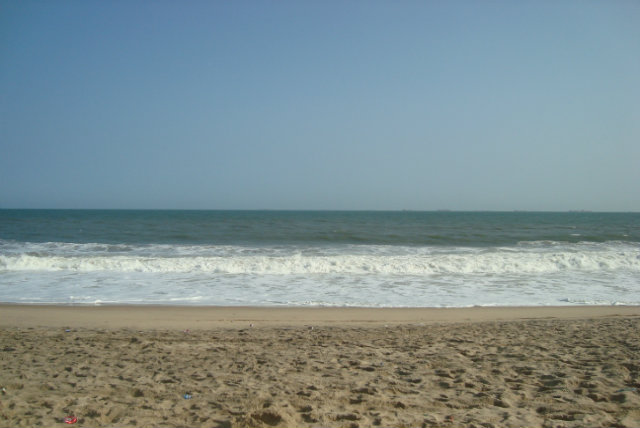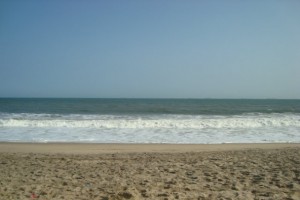Months back, I was showing some out-of-town friends, and their two-year-old son, around Lagos. They had a driver, let’s call him Guy G, who lived and worked outside of Lagos and so knew next to nothing about the city. I found this out when I said ‘We’re going to Eko Hotel’ and discovered, by the time I’d ended a phone conversation I’d been engrossed in, that we were on the bridge heading in the opposite direction, toward Ikoyi. So began the unpleasant, and surprisingly difficult, task of first mapping out our route in my head and then explaining it to a driver who was totally dependent on me for direction.
Three things made my task even more difficult: one, I’m very bad with directions, giving or taking them. Two, I don’t always know my right from my left so it’s something I have to work out for a few seconds. (One time I kept saying go left, left, while pointing right and wondering why Guy G was looking so confused). Three, and most distressing to me, Guy G had an attitude. It was as if his wife had left him that morning and I was to blame. When he wasn’t growling or grunting his responses he was shouting them; at a point I thought he might bite me.
Our final stop was the beach – a beach, rather. They wanted to see a beach. Guy G was still as grumpy as ever, so I could not imagine how invested he would be in this. I took them to Bar Beach. At the time, I hadn’t realised a good part of Bar Beach had been sand-filled, reclaimed for the Lagos State Government’s Eko Atlantic project. The beach area looked normal from what I could see from the road: there were still lots of cars parked, with the usual array of thugs collecting ‘entry fee’ and hawkers selling all sorts of beaded and carved things. And so I led my troop and we paid our fee, only to emerge from the sidewalk to find the beach gone, with just a long stretch of sand in its place. Somewhere beyond the horizon we could just about make out some blue. There was our ocean.
I was mortified. I explained to my disappointed party that the last time I’d been there, over a year ago, it had been a proper beach. And I did know about the Eko Atlantic project; I just didn’t know they’d gone so far with it. But if there was no beach, why the hell were there still thugs collecting ‘entry fee’? After a few minutes of staring dismally into the distance, we discovered, to the right of us, a very small stretch of beach front that had yet to be filled in. Some church people were returning from there, their white garments billowing in the wind. I asked one of them if it was okay for us to head on there, and he pointed to a man a few feet away and asked me to ‘see him’. I knew what this would mean – more money, and for only a few metres of beachfront. I led my group away.
‘You know, there’s another beach close to where I live,’ I said as we walked back to the car, not really thinking they’d want to go. But they did, even though I said it would mean spending more money and possibly getting stuck in traffic. So we got in the car and headed toward Elegushi. For some reason, and I might have noticed earlier if I’d been paying closer attention, Guy G seemed less aggressive.
We got to Elegushi beach, paid our fee and parked the car.
‘Uche, we can’t see any beach o,’ my friend said. ‘Are you sure there’s anything here? Not like the other one?’
I reassured him we only had a short walk ahead.
The water emerged before us in all its blue-grey glory, rolling waves breaking against the shore, the breeze ruffling everything. But I’d seen all this before, at this very beach, and so I wasn’t taken by any of it. Instead, I was watching the amazing transformation that had come over Guy G. At first he wouldn’t go near the water, like me – I wasn’t getting wet that day for anything – but he kept marveling in Yoruba about the wonderful creation of God. And it was wonderful; but jaded as I had become it had ceased to make an impression on me anymore. Until I started to inhabit the space Guy G was in.
It was his first time seeing the ocean. Having lived in Lagos most of my life I must have known, in some faraway place in my mind, that there would be many Nigerians who never got to see the ocean. It’s not like we have that many coastal states. But I guess it had never really been impressed upon my mind. Now, seeing Guy G who had shaken off his reluctance and approached the water with awe and a hint of suspicion before finally embracing it, I appreciated the sight before my eyes even more. Guy G was singing, and dancing, and striking weird poses, making jokes, and throwing handfuls of water over the two-year-old and himself. At some point he got a little water in his mouth.
‘Ah, there is salt in the water o!’ he exclaimed.
I laughed, feeling pride at his joy and amazement, like I had put every drop of that ocean there myself.
We went to stand on the pile of rocks and gravel that acted as a breakwater, and Guy G made me take several pictures of him.
We didn’t stay very long at the beach, but Guy G was like a little boy every minute we were there. He was singing as they dropped me off at my house, and I like to think he was singing all the way back to his home.



